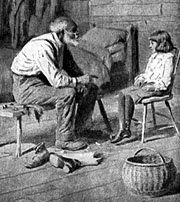I have been conducting operations against Facebook trolls and liberals for a long time now and I thought it would be fun to sum up. Theodore Sturgeon, a science fiction writer I started reading when I was about twelve years old, coined a law which applies now more than ever: "90% of everything is crap."
He was referring to creative writing and defending science fiction in particular of being trash and his adage which has come to be known and Sturgeon's Law was originally applied to fiction in all its forms. It seems to me that Sturgeon's Law now applies to everything in the media and on the internet. You can't really trust anything that you see published out there. Is this a change? I don't really know because in the past the access to publication was so much narrower that you only saw a few outlets and you assumed they were telling the truth. In retrospect there's no reason to really believe that they were and lots of reasons to believe that even then you were being fed managed news intended to influence you in the "right" way so that the archons would be pleased.
So how do you deal with a world in which you can't trust any information source very much? My suggestion is that you scan the spectrum and apply plausibility observations. If a particular news interpretation is being conveyed in almost exactly the same terms from sources that tend to a particular political bias, either right or left, you can be pretty certain that it is a spin-doctored story that is aimed at defining the narrative. Be suspicious of it.
If on the other hand a story is told that doesn't fit the usual bias of the source then question why it is being reported and see what other sources with different biases are saying. The fact of a story being reported that is counter to the usual bias suggests a story that is too hot to cover up and look for signs of damage control.
Build a collection of trusted sources but as president Reagan used to say: "Trust but verify." I always remember a little discussion I had with a fellow student trainee at the Naval Air Development Center back in the early 1960s. We were walking across a large hanger which had a P3 with the experimental ANEW avionics in it and we were talking about the complexity of modern weapons systems that were computer controlled and centralized integrating a sophisticated array of sensors. We agreed that no individual actually understood the whole system and were wondering how you could ensure its reliability. Generally we thought that you could only validate the subsystems and the communication protocols. As we separated to go to different offices my friend whose father was an engineer said "My dad says it's all a game of who do you trust?" Later I asked my father about that in the context of commanding a large complex Navy facility. He reiterated the idea and talking about finding a trusted associate that already knew the ropes when you're taking command of a new and previously unfamiliar station. Trust is fundamental. Keep score.
The Romans had an aphorism Quis custodiet ipsos custodes? or Who guards the guard themselves? In a free society the people must be eternally vigilant for they must guard the guards.
Saturday, August 10, 2013
Subscribe to:
Post Comments (Atom)











No comments:
Post a Comment